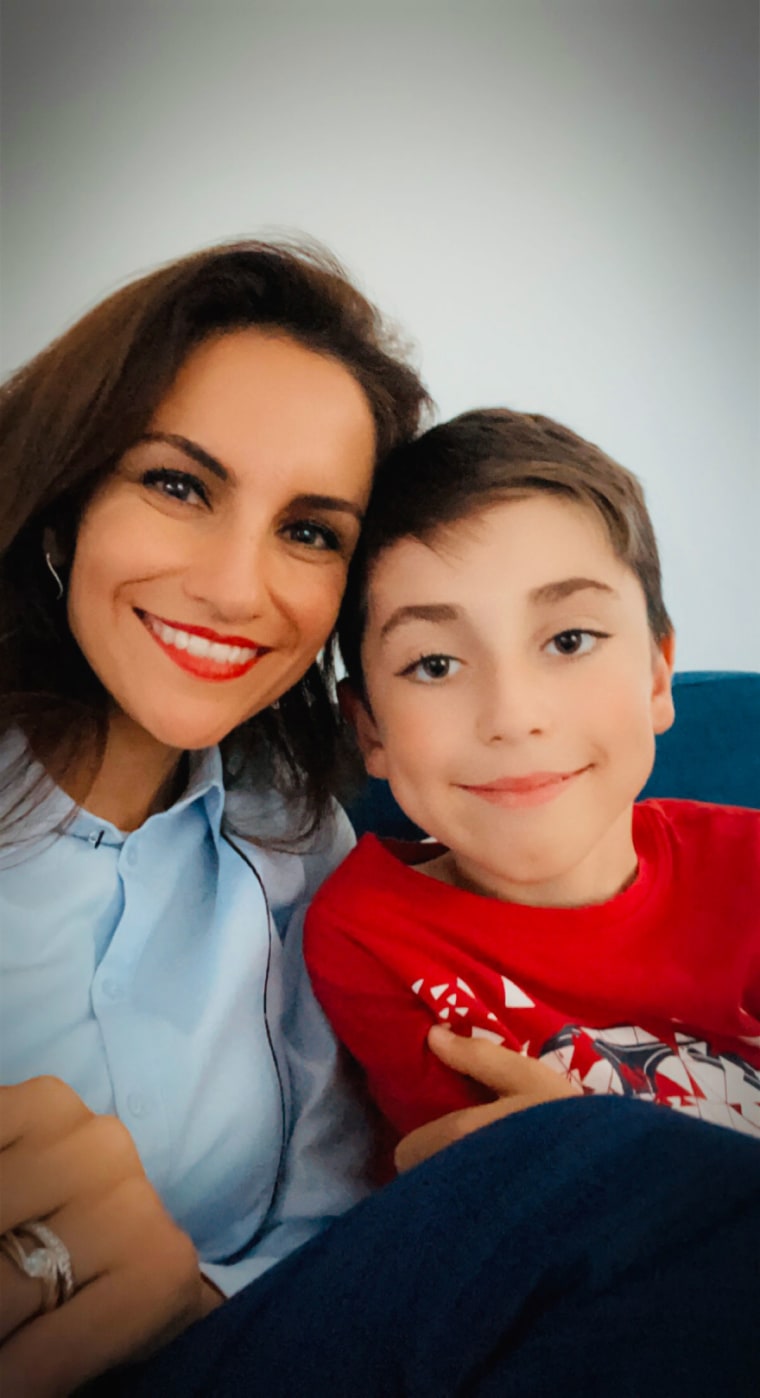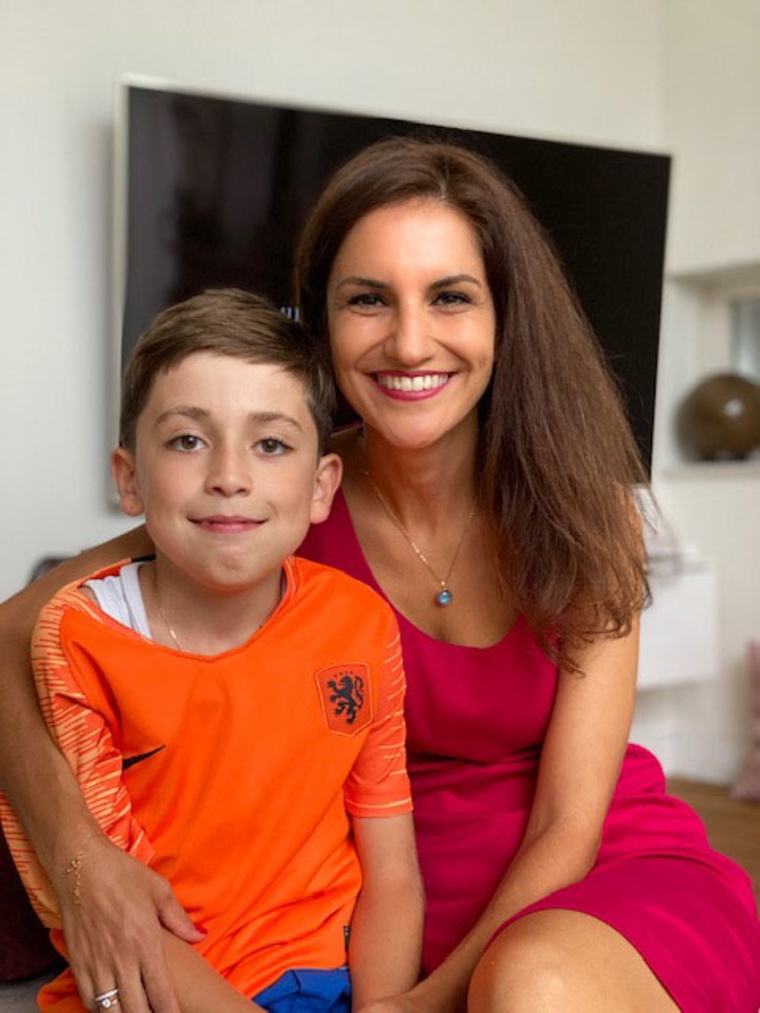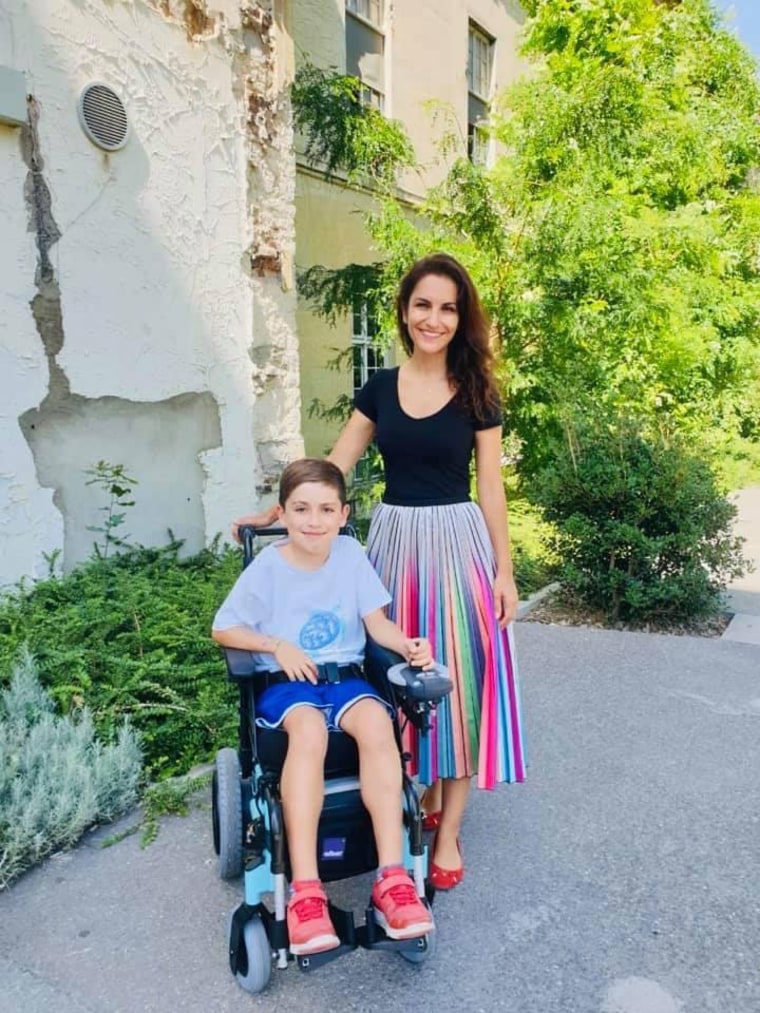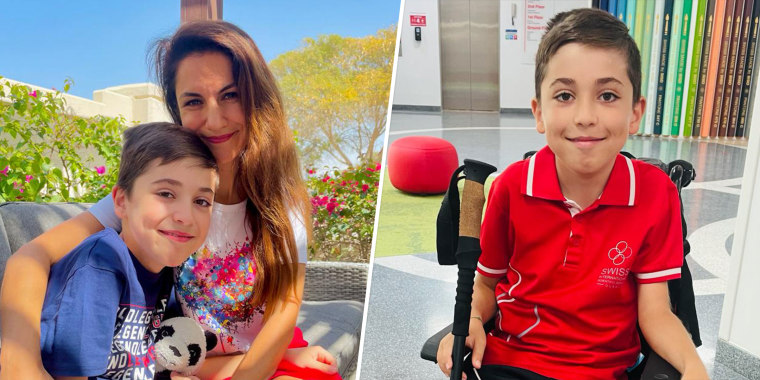Lousin Mehrabi is a negotiation professional, inspirational speaker, trainer and advisor in negotiations, emotional intelligence and leadership. She is also the mother of Alex, 11, who has Duchenne muscular dystrophy, a genetic condition that progressively causes muscle weakness and degeneration. It is life-limiting and currently has no cure. In a conversation with TODAY, she shared more about her family's journey, and how she told Alex he has an incurable disease.
We had just celebrated Alex’s 6th birthday when we received his diagnosis of Duchenne muscular dystrophy. That’s a little later than when most children are diagnosed. While I had a sense that something was wrong before the diagnosis and was visiting doctor after doctor for answers, few connected his behavioral symptoms, exhaustion and falling to a diagnosable condition. One doctor suggested that Alex was simply not athletic, perhaps like me. When he was 5, we found a neurologist who took us seriously and did a simple examination where she asked Alex to get off the floor without using his hands or nearby furniture. He couldn’t. This is called Gower’s sign, and it’s a telltale indicator of Duchenne muscular dystrophy, showing that the hip and thigh muscles are too weak. From there he underwent some more tests, a biopsy and bloodwork, and he was officially diagnosed.
At first, he didn’t realize anything was different about him — Alex thought he was clumsy. A sense of calm emerged when we had a name for what was wrong and that helped me explain why he falls, or struggles with some physical activity. We encouraged him to take breaks when he’s tired and told him if walking up the stairs like his friends felt too tough, he could do it any way that made sense for him. As we adjusted how we talked about his physical movement, Alex’s behavior improved. It was as if he sensed something was wrong and had been acting out.

I had never heard of Duchenne muscular dystrophy before so I didn’t realize how serious it was. I started Googling, against the doctor’s recommendation, and soon realized how rapidly the disorder progresses. I worried that as a mom I wasn’t strong enough to help Alex navigate this condition. When you have children, you never anticipate they'll have a progressive and life-limiting disease.
I pushed my fears aside and explained to him that the doctor said something was wrong with his muscles. I presented it in a way so that it sounded positive, like we finally had an explanation for why he can’t run very well. I shared that everyone faces challenges in life, and this is one that he has. But I added that his family is here to help carry the burden and support him. I wasn’t sure that he got it, but the next day a friend visited. My friend was considering weight loss surgery because he struggled with his weight and Alex piped up and noted this was his life challenge and that everyone has one. I felt proud that he embodied what I said.
While I wasn’t hiding Alex’s diagnosis from him, I also had not shared how serious it was or that he could die from it. A few months ago, he lost his ability to walk and he struggled to understand why that happened. He asked what he was doing wrong and why his legs no longer worked. I connected him with a therapist so he could process his feelings and she suggested that we have another talk about his condition. She suspected he might start Googling answers himself and thought it would be better if I addressed it with him first. Also, this would give me the opportunity to create a safe space so he would know he could trust me if he needed to be vulnerable.
I prepared for this talk like I would prepare for any business negotiation. I knew this would be a tough conversation so first I put myself in his shoes and considered what he might need. After chatting with my husband, we decided not to tell him it was fatal. Science is advancing so fast that a treatment or a cure might be available in his lifetime. I was going to share that there is no cure.
When we sat down in a beautiful garden in Dubai, where we live, I told him about Duchenne muscular dystrophy. I stressed that it is very severe, and I know it’s a tough burden he’s carrying but his family was here to help. I wanted him to understand it wasn’t his fault, but that if there aren’t any medical breakthroughs his health will slowly deteriorate. I also explained the stages of grief and how grief can happen when people lose something, such as when he lost his ability to walk. I said if he wanted to cry and talk about it, we could any time he wanted.
Alex has always been wise, like an old soul, so he considered everything I said. Later, he told me that he had thought about the stages of grief and he doesn’t think he experiences them like others. Sure, he sometimes gets mad and frustrated, but he doesn’t wallow in it. Instead, he focuses on joy. I told him it was wonderful that he created a shortcut in the grieving process.
Even though it was a day I dreaded, it turned out to be a really beautiful day. Nobody cried. We laughed. We joked and he took the news well, as if he already knew on some level.
Alex can no longer stand on his own and now uses a wheelchair. I've noticed that he is struggling at times to lift a drinking glass. It’s unclear what the next stages might be like. Sometimes when children with Duchenne muscular dystrophy are in wheelchairs, they begin to have other problems with their bones and their breathing. He could need a ventilator at night, for example.

I experienced the most grief when Alex was first diagnosed. I thought my child was healthy and then this news changed everything. It feels like your whole world collapses. Grief becomes a constant companion and it changes as life changes. There were moments of grief when he struggled to walk up the stairs. Grief when he couldn't get off the floor without help. Grief when he could no longer run. Every two or three months, there is a new loss and something different to mourn. But I can’t stay with my grief for too long because I want to be in the moment with my son. That’s not to say I don’t scream, cry or bargain. I don’t judge myself for having these feelings. But I have them, accept them and go back to being there with Alex.
There were moments of grief when he struggled to walk up the stairs. Grief when he couldn't get off the floor without help. Grief when he could no longer run. ... But I can’t stay with my grief for too long because I want to be in the moment with my son.
After his diagnosis we moved from Paris to Dubai to improve his quality of life and help Alex have as many experiences as possible. His neurologist had told us he would most benefit from good physiotherapy, swimming and being in the sun, so we wanted to be in nice weather and living near the beach. We traveled extensively before the pandemic and living in Dubai is exciting for him. Alex loves soccer. A few years ago, the school soccer team let him join the team and while he spent most of the season nowhere near the ball, he did one time score a goal. It was a beautiful moment. He’s now the assistant soccer coach and spends his time preparing strategy. Alex is happy, which, as parents, is all we want for our children.
I shared our conversation on LinkedIn because it was the hardest conversation I ever had and it really took many of the skills I developed in my career to navigate it. But I also wanted to increase awareness of Duchenne muscular dystrophy and help others understand what this disease is. I hoped they'd realize the importance of raising money for research.

I’ve learned so much from Alex. I love that he lives in the moment and deals with whatever he faces without worrying about the future. His resilience inspires me. Once when he woke in the hospital after passing out, the first question he asked was who was winning the soccer match. He had no worries about his health. I hope that Alex inspires others and that his story helps families of children with Duchenne muscular dystrophy feel less alone.
This interview has been edited and condensed.
